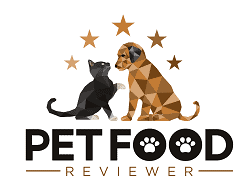What Is Alfalfa?
Alfalfa, which is also known as Lucerne in the UK, Australia, New Zealand, and South Africa, is a perennial flowering plant that is closely related to Peas and is easily recognizable by a cluster of purple flowers. It is common in many countries with mild climates and in some is an important forage crop. Because Alfalfa grows continuously through the warmer months of the year, it can be harvested up to five times in a single year.
Alfalfa has a long history of use as a dietary supplement and a livestock feed. The seeds or dried leaves of the Alfalfa plant can be taken as a supplement, or the seeds can be planted and then harvested as sprouts which can also be eaten.
Alfalfa’s nutritional profile consists of around fifteen to twenty percent protein, fifteen to thirty percent fiber, and ten percent ash. This is a significant proportion of protein for a plant-based ingredient and could be compared to other popular legumes like Peas and Lentils.
Why Is Alfalfa Used In Dog Food?
So why is Alfalfa being regularly included in commercial dog food? It is certainly not an ingredient that dogs ancestors would have consumed. Alfalfa can be perceived as both a positive and negative addition and the this depends on the quantity of it that is used.
Potential Filler?
Alfalfa is a low-cost ingredient, especially when compared to meat and fish ingredients. Therefore some pet food manufacturers may use ingredients such as Alfalfa as fillers to pad out a percentage of the recipe, thus allowing it to be more cost-effective. While many brands will dispute this tactic, it is widespread and a reality of consumers expecting higher and higher quality dog food at a lower and lower price.
Sadly, due to its naturally high protein content, Alfalfa could be used to inflate the overall level of protein in a dog food formula with lower-quality plant-based protein instead of more premium animal and fish protein. This use would be similar to the use of other high-protein plant-based ingredients such as Pea Protein and Potato Protein.
Find out more about Pea Protein in our article Peas, Pea Protein, Pea Flour and Pea Fiber in Dog Food. You can also find out more about Potato Protein in our article Potatoes, Potato Protein & Potato Starch in Dog Food.
Potential Superfood?
However, some premium dog food brands use a tiny proportion of Alfalfa in their recipes. In these cases, where the portion of Alfalfa is small then it is likely that it isn’t being used to bolster already high protein levels or as a filler and is therefore not a negative addition.
So for what purpose are these higher-quality and premium brands using Alfalfa for?
Alfalfa offers a wide range of vitamins and minerals. The best example of a vitamin that Alfalfa is abundant in is Vitamin K. Vitamin K is essential in maintaining healthy blood and bones.
Other notable inclusions are Calcium, Vitamin C, Copper, and Manganese, Potassium, and Beta-Carotene. Minerals such as Calcium and Potassium are essential for bodily functions such as maintaining healthy bones and normal blood pressure.
Copper is required to create red blood cells and maintain nerves. Beta Carotene is vital for a healthy immune system, vision, and skin.
Alfalfa has also been mentioned as a potential source of antioxidants. Antioxidants can improve the health of the heart and present infection or even cancer.
Lastly, Alfalfa is used in some more unique and unusual ways that go beyond its protein content, fiber content, or the vitamins and minerals it contains. Some people use Alfalfa to help lower cholesterol or to treat conditions like Arthritis and Asthma.
While the evidence to support Alfalfa countering or improving these conditions is still somewhat limited, there are some promising signs and in the years to come a relationship may be solidified. One of the potential benefits mentioned above, lowering cholesterol, has been proven in both humans and animals which is very promising.
Dog Food Brands That Use Alfalfa
There are a number of popular and premium dog food brands that make use of Alfalfa in their products. Examples include Nature’s Logic, Zignature, Canidae, Weruva, Merrick, and Crave. However, there are other popular brands do not choose to include Alfalfa in their products such as Orijen and Nature’s Variety Instinct. These brands lack of Alfalfa should not reflect poorly upon it as it is likely that they are using other ingredients to provide the same benefits or nutrition.


